Science & Technology


Planning to capture the Solar Eclipse on Monday (April 8)? Well, you sure can do it but with some precaution.
Sean Walker, an associate editor with Sky & Telescope magazine, said: "It all depends on how much effort one wants to put into it.”
NPR reported that people planning to witness the celestial event will have to wear eclipse glasses or other protective gear to keep their eyes safe when they aim their even camera at the eclipse or if they want to observe it.
Tips on how to click perfect eclipse picture using smartphone:
- Go super wide-angle or portrait; doing this will capture the whole horizon.
- Use burst mode during totality. The highlight of the eclipse is the diamond ring, which occurs for just a split second, so photographing it in burst mode will increase your chances of clicking the perfect picture.
- Switch off the flash before totality. This ruins the pixels and obstructs the view.
- Don't zoom in on the eclipse. Zooming reduces the quality of the picture, making it look grainy, Space reported.
- Shoot totality in RAW image format. This would retain the original sensor data and skip the built-in processing your smartphone automatically applies to JPEGs.

LAHORE: The Pakistan Cricket Board (PCB) Saturday placed an advertisement seeking separate bids for the post of national team's head coach for red and white-ball formats.
"We are seeking applications from dynamic individuals who will deliver integrated coaching support to our national team across different formats," the board's press release said, adding that the applications can be submitted till 5pm on April 15.
For both posts, the PCB is seeking individuals possessing at least Level III Cricket Coaching Accreditation along with a minimum five years experience in coaching international and domestic teams.
The development comes as the key post, along with others, was left vacant after Mickey Arthur, Grant Bradburn and Andrew Puttick, were transferred to the National Cricket Academy (NCA) in Lahore after a change in their portfolios in November 2023, left their respective positions in January this year.
The board, in its bid to appoint the Green Shirts' head coach, has reached out to various former cricketers including the likes of former West Indies skipper Darren Sammy, Australia's Shane Watson and New Zealand's Luke Ronchi.
Sammy, who is also Pakistan Super League (PSL) franchise Peshawar Zalmi's head coach, had turned down the PCB's offer owing to his existing contract with the West Indies board wherein he is serving as the side’s head coach in one-day internationals (ODIs) and T20Is.
Before that, the board's attempt to rope in Watson failed to materialise after the ex-cricketer declined the offer following the information leak in the media regarding the board's proposed package.
He also cited his willingness to honour his current coaching and commentary commitments including an Indian Premier League (IPL) commentary stint and his role as the head coach of Major League Cricket side San Francisco Unicorns.
Following the setback, the PCB then reached out to Ronchi for the said post. The ex-Kiwi cricketer has asked for some time to mull over the prospects of coaching the Men in Green.
Meanwhile, South Africa’s Gary Kirsten and Australia’s Justice Langer were also among the names being mulled by PCB for the job.
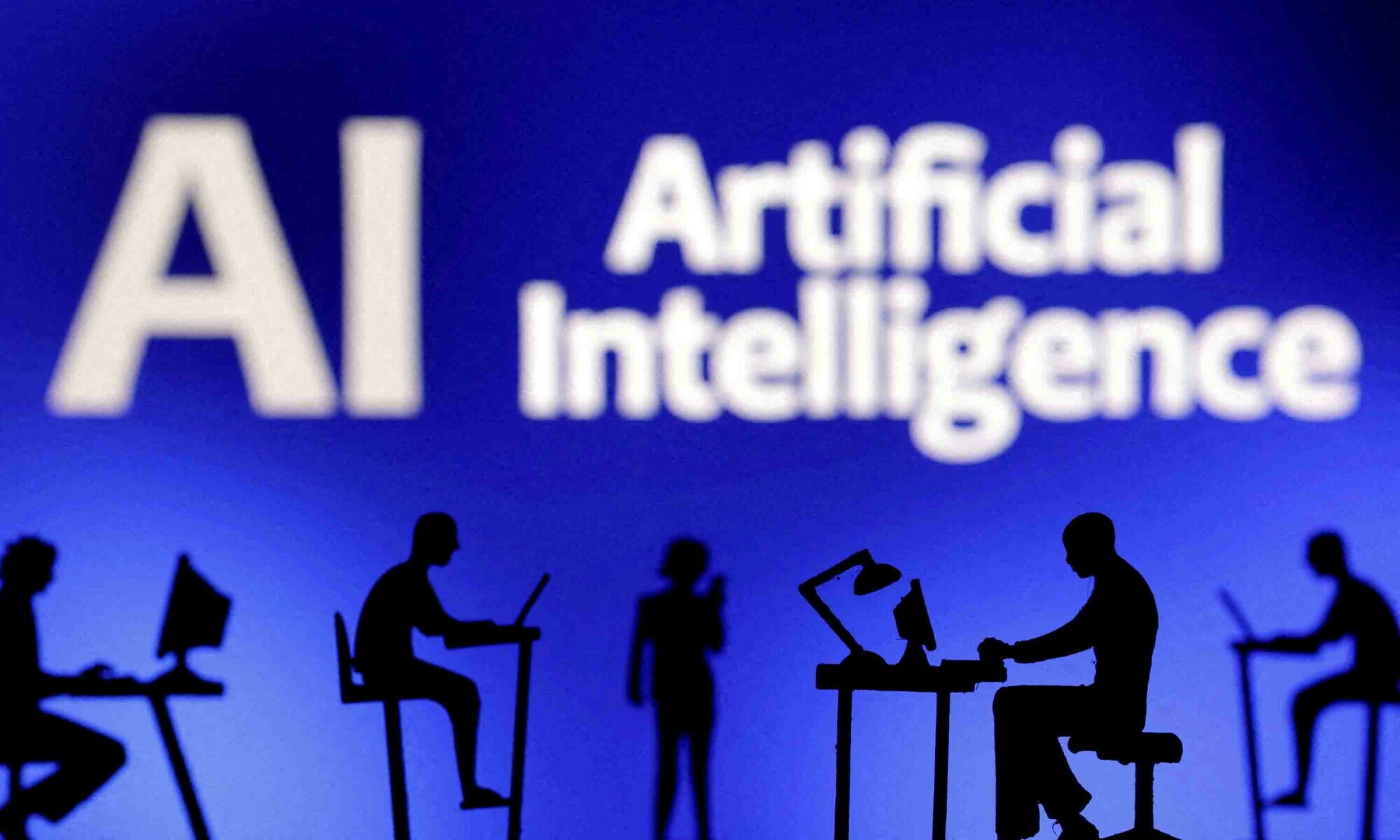
UNITED NATIONS: The UN General Assembly on Thursday called for the development of a set of international guidelines to address the risks and benefits of artificial intelligence.
The resolution, co-sponsored by dozens of countries and adopted by consensus, emphasises the necessity of guidelines “to promote safe, secure and trustworthy artificial intelligence systems,” while excluding military AI from its purview.
On the whole, the resolution, prepared by the United States, focuses more on the technology’s positive potential, and calls for special care “to bridge the artificial intelligence and other digital divides between and within countries.” It also seeks “to promote, not hinder, digital transformation and equitable access” to AI in order to achieve the UN’s Sustainable Development Goals, which aim to ensure a better future for humanity by 2030.
“As AI technologies rapidly develop, there is urgent need and unique opportunities for member states to meet this critical moment with collective action,” US Ambassador to the UN Linda Thomas-Greenfield said earlier, reading a joint statement by the dozens of co-sponsor countries.
According to Richard Gowan, an analyst at the International Crisis Group, “the emphasis on development is a deliberate effort by the US to win goodwill among poorer nations.” “It is easier to talk about how AI can help developing countries progress rather than tackle security and safety topics head-on as a first initiative,” he said.
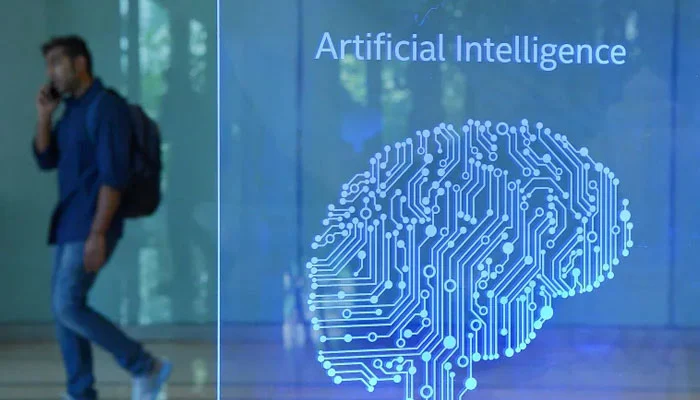
Viamo, a Canada-based mobile phone service in Nigeria, has recently launched a revolutionary artificial intelligence (AI) service for the country that allows anyone to access the technology without the internet.
This service has helped individuals like Kehinde Olutubosun, a visually-impaired Nigerian geography and animal enthusiast, who previously struggled to find information because he has no smartphone, Reuters reported.
The service, which works like an AI chatbot, uses a traditional handset to tap into local mobile phone networks to send commands or requests for information through short message service (SMS) or voice calls.
It can easily be used by illiterate persons since it can be prompted by voice and is cost-effective.
"For people who are not that financially buoyant, they still have this opportunity to use even as little as 10 naira to ask lots of questions that will actually benefit them, I am so happy," said Olutubosun.
According to the company, the device, which was first launched in Zambia, targets the world's poorest and remotest communities and is being expanded to Pakistan, India and Tanzania.
Viamo is supported by development agencies in the United States and the United Kingdom, among others. '
Additionally, the United Nations International Children's Emergency Fund (Unicef) has partnered with Viamo to provide information on human immunodeficiency virus (HIV), tropical diseases, nutrition, water, sanitation and hygiene.
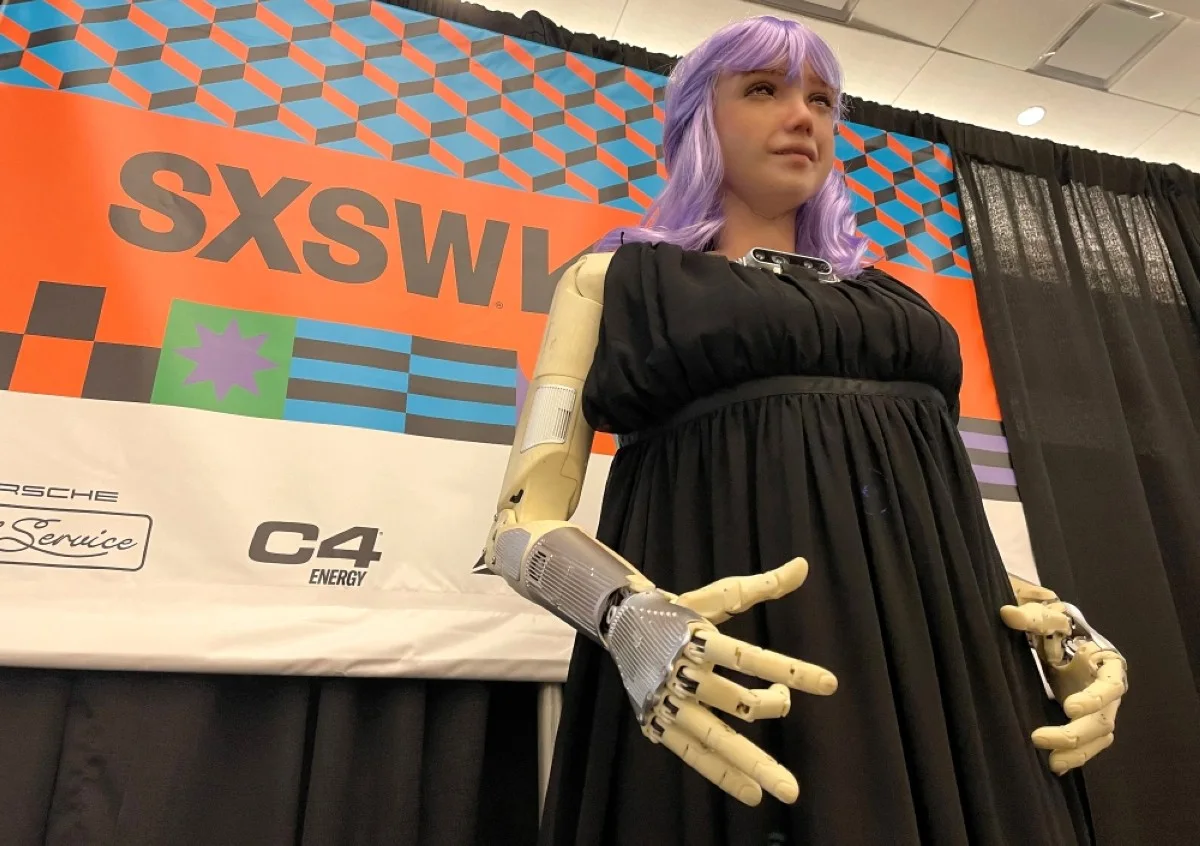
AUSTIN: Artificial intelligence aficionados are betting that the technology will help solve humanity’s biggest problems, from wars to global warming, but in practice, these may be unrealistic ambitions for now.
“It’s not about asking AI ‘Hey, this is a sticky problem. What would you do?’ and AI is like, ‘well, you need to completely restructure this part of the economy’,” said Michael Littman, a Brown University professor of computer science.
Littman was at the South By Southwest (or SXSW) arts and technology festival in Austin, Texas, where he had just spoken on one of the many panels on the potential benefits of AI.
“It’s a pipe dream. It’s a little bit science fiction. Mostly what people are doing is they’re trying to bring AI to bear on specific problems that they’re already solving, but just want to be more efficient.” “It’s not just a matter of pushing this button and everything’s fixed,” he said.
With their promising titles (“How to Make AGI Beneficial and Avoid a Robot Apocalypse”), and the ever presence of tech giants, the panels attract big crowds, but they often hold more pragmatic objectives, like promoting a product. At one meeting called “Inside the AI Revolution: How AI is Empowering the World to Achieve More,” Simi Olabisi, a Microsoft executive, praised the tech’s benefits on Azure, the company’s cloud service. When using Azure’s AI language feature in call centers, “maybe when a customer called in, they were angry, and when they ended the call, they were really appreciative. Azure AI Language can really capture that sentiment, and tell a business how their customers are feeling,” she explained.
The notion of artificial intelligence, with its algorithms capable of automating tasks and analyzing mountains of data, has been around for decades. But it took on a whole new dimension last year with the success of ChatGPT, the generative AI interface launched by OpenAI, the now iconic AI start-up mainly funded by Microsoft. OpenAI claims to want to build artificial “general” intelligence or AGI, which will be “smarter than humans in general” and will “elevate humanity,” according to CEO Sam Altman. That ethos was very present at SXSW, with talk about “when” AGI will become a reality, rather than “if.” Ben Goertzel, a scientist who heads the SingularityNET Foundation and the AGI Society, predicted the advent of general AI by 2029.
“Once you have a machine that can think as well as a smart human, you’re at most a few years from a machine that can think a thousand or a million times better than a smart human, because this AI can modify its own source code,” said Goertzel. Wearing a leopard-print faux-fur cowboy hat, he advocated the development of AGI endowed with “compassion and empathy,” and integrated into robots “that look like us,” to ensure that these “super AIs” get on well with humanity.
David Hanson - founder of Hanson Robotics and who designed Desdemona, a humanoid robot that functions with generative AI - brainstromed about the plus and minuses of AI with superpowers.
AI’s “positive disruptions...can help to solve global sustainability issues, although people are probably going to be just creating financial trading algorithms that are absolutely effective,” he said.
Hanson fears the turbulence from AI, but pointed out that humans are doing a “fine job” already of playing “existential roulette” with nuclear weapons and by causing “the fastest mass extinction event in human history.” But “it may be that the AI could have seeds of wisdom that blossom and grow into new forms of wisdom that can help us be better,” he said.
Initially, AI should accelerate the design of new, more sustainable drugs or materials, said believers in AI. Even if “we’re not there yet... in a dream world, AI could handle the complexity and the randomness of the real world, and... discover completely new materials that would enable us to do things that we never even thought were possible,” said Roxanne Tully, an investor at Piva Capital.
Today, AI is already proving its worth in warning systems for tornadoes and forest fires, for example.
But we still need to evacuate populations, or get people to agree to vaccinate themselves in the event of a pandemic, stressed Rayid Ghani of Carnegie Mellon University during a panel titled “Can AI Solve the Extreme Weather Pandemic?” “We created this problem. Inequities weren’t caused by AI, they’re caused by humans and I think AI can help a little bit. But only if humans decide they want to use it to deal with” the issue, Ghani said. – AFP
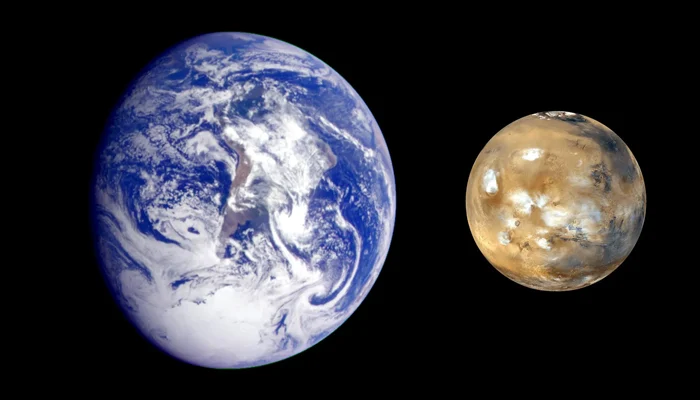
Study reveals that deep-sea currents have been weakening, strengthening during 2.4m-year climate cycles
Scientists have made a surprising revelation about the impact of the red planet on our oceans as experts studied and analysed sediments to acquire a deeper understanding of Earth.
The researchers found in their study published in the journal Nature Communications Tuesday that Mars has been behind causing giant whirlpools in our oceans.
The collected sediments suggested that deep-sea currents have been weakening and strengthening during the 2.4 million-year climate cycles.
While explaining the findings, the study’s co-author and sedimentologist at the University of Sydney, Adriana Dutkiewicz said the discovery of these cycles was unexpected.
The co-author said in a statement: "They are linked to cycles in the interactions of Mars and Earth orbiting the Sun."
According to the study researchers, their findings are the first to reveal these surprising connections.
Both planets make their impact on each other through a phenomenon called "resonance". In this process, two bodies orbiting the same axis interact through a gravitational push or pull — also called harmonization between two plants.
This exchange caused a change in the shape of their orbits influencing their circle and their distance from the sun.
In such interactions with Mars, Earth sees warm temperatures causing more vigorous ocean currents, according to the study.
Dietmar Müller, professor of geophysics at the University of Sydney and a study co-author said: "While these 2.4 million-year cycles affect warming and ocean currents on Earth, they are natural climate cycles and not linked to the rapid heating the world is experiencing today as humans continue to burn planet-heating fossil fuels."
According to the research writers, the currents in the oceans are termed "giant whirlpools" reaching the bottom of the ocean, eroding the seafloor. It also results in accumulations of sediments, like snowdrifts.
CNN reported quoting Müller that because satellite data can visibly map changes in ocean circulation and has only been available for a few decades, sediment cores — which help to build a picture of the past going back millions of years — are very useful for understanding circulation changes in a warmer climate.
Müller said that if today’s human-caused warming continues on its current trajectory "this effect will dwarf all other processes for a long time to come," adding that but "the geological record still provides us with valuable insights about how the oceans operate in a warmer world."
Experts also noted the possibility of mitigation of some of the impacts of a potential collapse of the Atlantic Meridional Overturning Circulation (AMOC), an ocean circulation helping the process of warm water transportation from the tropics to the far North Atlantic.
A collapse of such system would have disastrous climate impacts.
"Our work does not say anything about what may or may not happen to AMOC," Müller said adding that "our point is, rather, that even if AMOC were to shut down, there are still other processes to mix the ocean, even though their effects would be quite different."
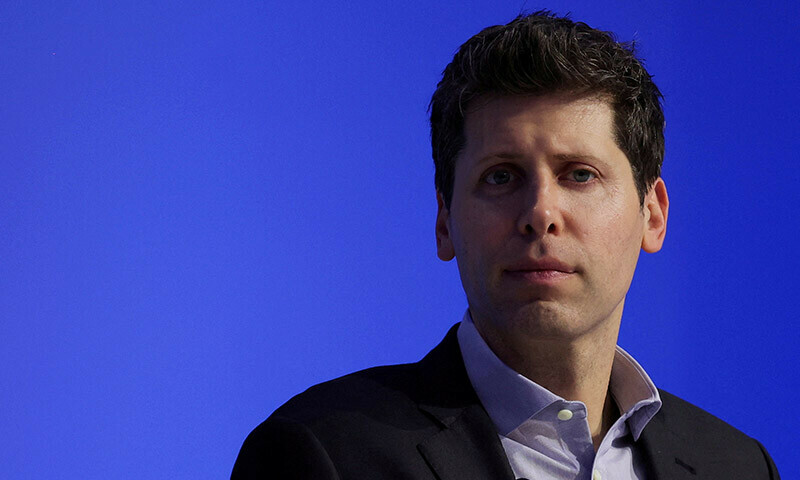
OpenAI Chief Executive Sam Altman will return to the ChatGPT-maker’s board along with three new directors, the world’s most prominent artificial intelligence company said on Friday.
An investigation by law firm WilmerHale into the events surrounding Altman’s November firing has concluded, and the company has created new governance rules and strengthened its conflict of interest policy. The board said it unanimously backed Altman’s leadership.
Employees, investors and OpenAI’s biggest financial backer, Microsoft (MSFT.O), opens new tab, had expressed shock over Altman’s ouster, which was reversed within days.
OpenAI said on Friday it was appointing new directors including Altman, Sue Desmond-Hellmann, a former CEO of the Bill and Melinda Gates Foundation, Nicole Seligman, a former president of Sony Entertainment, and Fidji Simo, CEO of Instacart.
Altman welcomed the new board members in a post on X, adding, “We have important work in front of us.”
They will join current board members Adam D’Angelo, the CEO of Quora, former US Treasury Secretary Larry Summers and Chairman Bret Taylor, former co-CEO of Salesforce.
The investigation by WilmerHale found that Altman’s dismissal was not the result of concerns related to OpenAI’s finances, product safety or other issues.
“Instead it was a consequence of a breakdown in the relationship and loss of trust between the prior Board and Mr. Altman,” OpenAI said, describing the law firm’s findings.
“WilmerHale found that the prior Board believed at the time that its actions would mitigate internal management challenges and did not anticipate that its actions would destabilize the Company,” OpenAI said in a blog post.
“WilmerHale found that the prior Board acted within its broad discretion to terminate Mr. Altman, but also found that his conduct did not mandate removal,” it added.
Conflict of interest
OpenAI said it was adopting new corporate governance guidelines and creating a whistleblower hotline. The startup, whose CEO has been a prolific investor in other companies, also said it was strengthening its conflict-of-interest policy.
The board gave few details about those improvements.
The board’s lack of detail for its surprise November decision fueled speculation about potential misconduct by Altman, which he and the company have denied, and about supposed existential risks from the technology that OpenAI is building.
Altman’s return as CEO about four days after his firing came after nearly all of OpenAI’s employees threatened to depart unless the board restored Altman and resigned.
His return led to discussions about how OpenAI would be governed, and the company announced a reconstituted board that did not include Altman and was helmed by Taylor.


